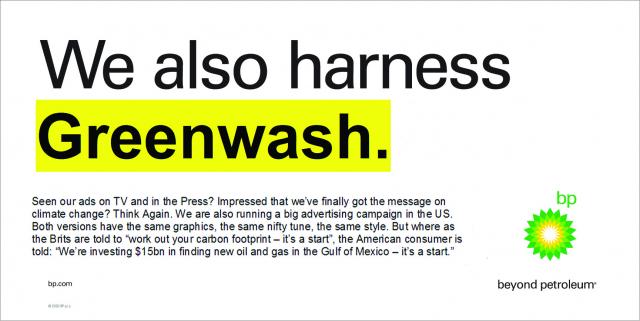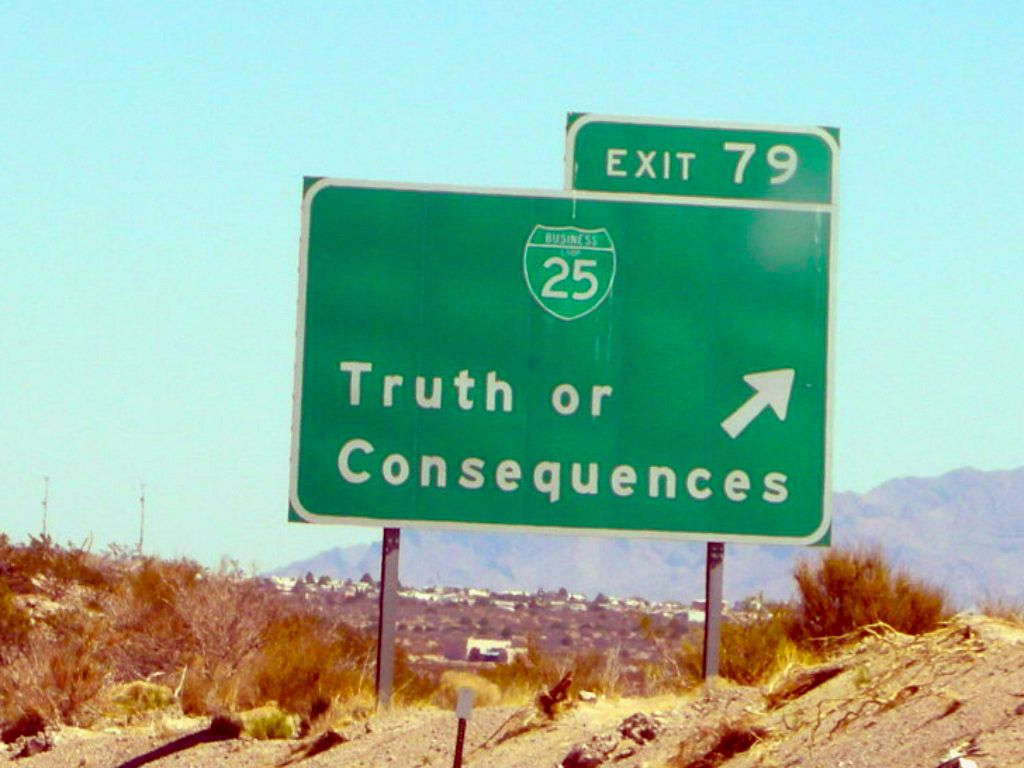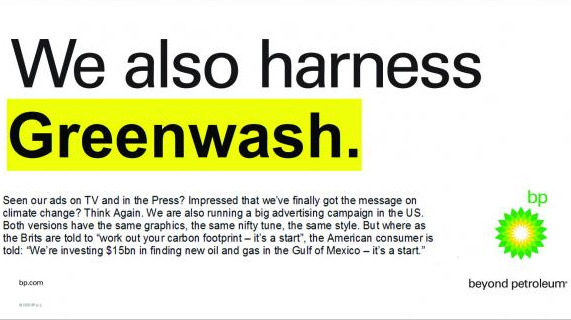 Beyond petroleum, BP harnesses greenwashing and green fraud. Click for a larger version.Image: London Rising TideLast week, the Federal Trade Commission (FTC) proposed guidelines to address the practice of inflating eco-friendly claims for a growing list of products, commonly known as greenwashing. Experts are debating if manufacturers should consider minimum standards for sustainable content and recycling practices, among many other factors, in an effort to help consumers understand just what shade of green they get for any given purchase. It’s a worthy effort and long overdue, but the FTC should go beyond greenwashing and tackle green fraud.
Beyond petroleum, BP harnesses greenwashing and green fraud. Click for a larger version.Image: London Rising TideLast week, the Federal Trade Commission (FTC) proposed guidelines to address the practice of inflating eco-friendly claims for a growing list of products, commonly known as greenwashing. Experts are debating if manufacturers should consider minimum standards for sustainable content and recycling practices, among many other factors, in an effort to help consumers understand just what shade of green they get for any given purchase. It’s a worthy effort and long overdue, but the FTC should go beyond greenwashing and tackle green fraud.
Let’s take the oil industry, for example. A Gallup Poll, released the same week as the FTC’s eco-truth-in-advertising initiative, showed that residents of the Gulf coast with serious signs of depression jumped 25 percent since the BP Gulf of Mexico oil spill of this past summer. Beyond just mental anguish, this corresponds to lost livelihoods and physical health impacts that were the direct result of the BP disaster. Against this harsh reality, the oil giant continues to publish full page newspaper ads and pay millions of dollars for TV commercials asserting that they will “make it right” with little evidence that they could ever fully restore those people to psychological and financial health. Some genies simply can’t be put back in the bottle and no amount of greenwashed ads can make it otherwise.
In my book Lives Per Gallon: The True Cost of Our Oil Addiction, I summarized the money spent on tax breaks for the oil industry, taxpayer-sponsored defense of oil around the globe, health care costs directly related to petroleum air pollution, and a variety of other tangible costs that appear on the balance sheets of governments and businesses — certainly not revealed in the liabilities column on the balance sheet of any oil company. Those costs add up to about $6 per gallon of gas above whatever it says on the pump, making the price shown in huge letters on gas station billboards a massive fraud.
And those misrepresentations have consequences. In 2008, when gas and diesel hit $4 per gallon at the pump, consumers cut back on driving and bought more fuel-efficient cars. When prices dropped back down, people reverted to old wasteful habits. Oh, I know, cars don’t waste fuel, create pollution, and literally kill people … people waste fuel, create pollution, and literally kill other people. But if we paid the true price at the pump (and saved that money on our taxes and health care costs), might we be motivated to stop this environmental and economic suicide? Is this form of greenwashing, therefore, just as harmful as allowing a product label to say “all natural” or “eco-friendly” when such claims may be mostly false?
Moreover, if tobacco companies must tell the truth about the health consequences of their products, why shouldn’t oil companies be held to a similar standard? A study released last month by the Children’s Hospital in Boston shows a strong link between adult diabetes and air pollution. Other studies in recent years show that children living near busy freeways lose as much as one percent of their lung function annually. Where is this vital information made available to the general public? Not on any gas pump or glossy BP ads about the Gulf spill that I have seen.
The FTC’s first step to ensure that green products are truly green is laudable, but it is nothing more than that — a first step. Future scrutiny needs to also focus on the bigger wool that has been pulled over consumer eyes for decades and which — despite wool’s eco-friendly attributes — masks a far greater example of deceptive public communications than those the FTC is currently examining.



